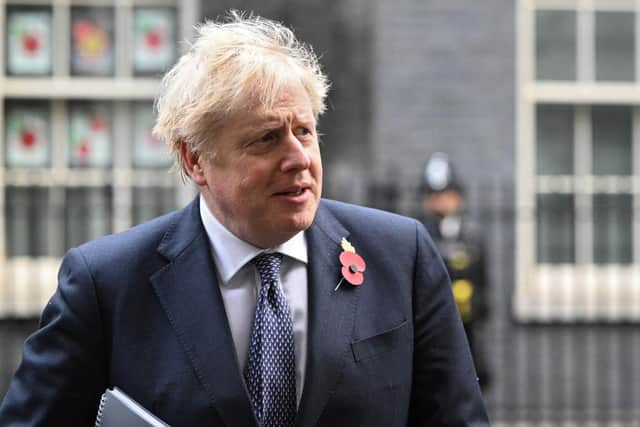Cut to international aid budget prompts fierce Tory backlash for Boris Johnson
A number of prominent Conservatives publicly expressed concern at the move – which formed part of the party’s manifesto – as the Government’s economic forecasts were questioned by some economists.
The overseas aid cut was announced by Chancellor Rishi Sunak as one of a number of measures intended to help cope with the economy contracting by an expected 11.3% this year.
Advertisement
Hide AdAdvertisement
Hide AdThe Prime Minister and Mr Sunak addressed a virtual meeting of the 1922 Committee of Tory backbench MPs on Wednesday night to try and firm up support for their approach.


Former foreign secretary Jeremy Hunt and ex-prime minister David Cameron, were among those criticising the plans to cut overseas aid from 0.7% to 0.5% of gross national income (GNI).
The GNI in 2019 was £2.17 trillion, meaning a drop from 0.7% to 0.5% would account for more than £4 billion.
It prompted Foreign Office minister Baroness Sugg to quit in protest and, in her resignation letter to Mr Johnson, she called it the “fundamentally wrong” move, telling the Prime Minister it would “diminish our power to influence other nations to do what is right”.
Other Tories critical of the move included former international development secretary Andrew Mitchell and chairman of the Commons defence committee Tobias Ellwood.
Archbishop of Canterbury Justin Welby said it was “shameful and wrong” while Mr Mitchell said it would be “the cause of 100,000 preventable deaths, mainly among children”.
Mr Ellwood warned China and Russia are likely to extend their “authoritarian influence” as a result of the “vacuum” created by the UK “downgrading” its soft power programmes.
Mr Sunak said the 0.5% equated to around £10 billion in aid and defended the cut, adding: “Sticking rigidly to spending 0.7%” was “difficult to justify to the British people” amid record levels of peacetime borrowing.
Advertisement
Hide AdAdvertisement
Hide AdThe Chancellor earlier said the economy was not scheduled to recover to pre-crisis levels until the end of 2022.
Emergency measures will see the Government borrow £394 billion this year, which amounts to 19% of Gross Domestic Product (GDP), a measure of the size of the economy – the highest ever recorded in peacetime.
However, head of the Institute for Fiscal Policy (IFS) Paul Johnson questioned whether even more borrowing than that signalled by the Government would be needed.
He Tweeted: “SR (Spending Review) assumes zero spending on Covid after next year. It assumes Universal Credit is cut in April. It assumes non-Covid spending will be £10bn p.a. less than expected in March. Not sure any of these will happen. Implying quite a lot more borrowing even than the £100bn forecast.”
Mr Sunak also announced what amounted to a pay freeze for an estimated 1.3 million public sector workers.
NHS workers will be spared the “pause” in wage rises, and those earning below £24,000 will receive at least £250 extra.
Shadow chancellor Anneliese Dodds condemned the pay freeze for public sector workers and claimed the Spending Review “takes a sledgehammer to consumer confidence”.
A message from the Editor:
Thank you for reading this article. We're more reliant on your support than ever as the shift in consumer habits brought about by coronavirus impacts our advertisers.
If you haven't already, please consider supporting our trusted, fact-checked journalism by taking out a digital subscription.
Comments
Want to join the conversation? Please or to comment on this article.
